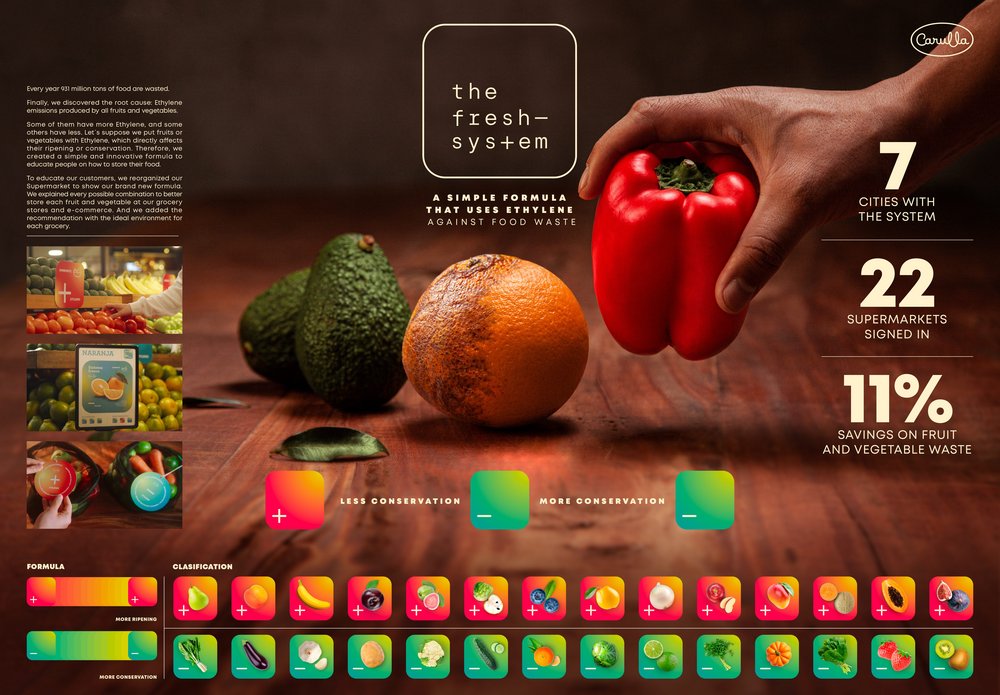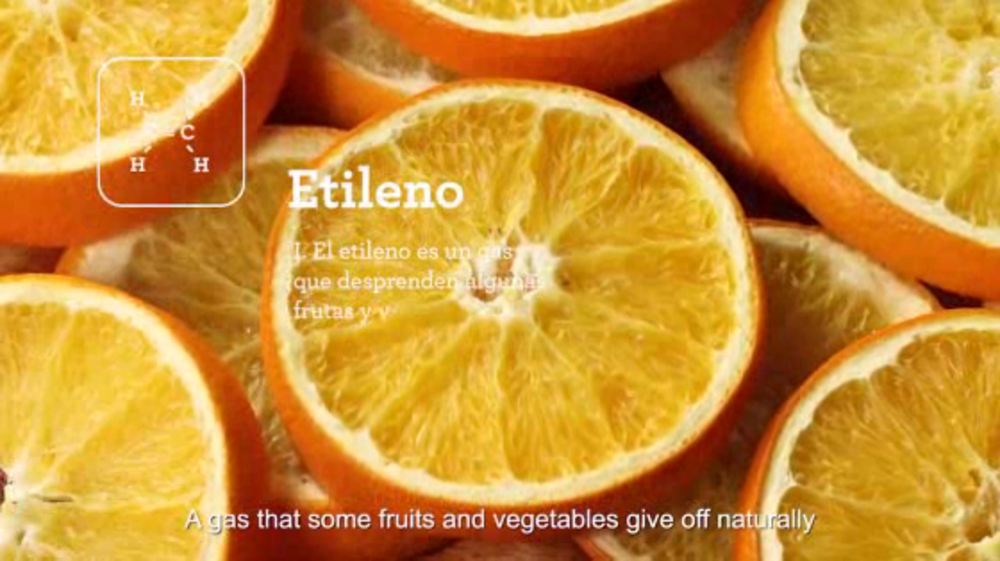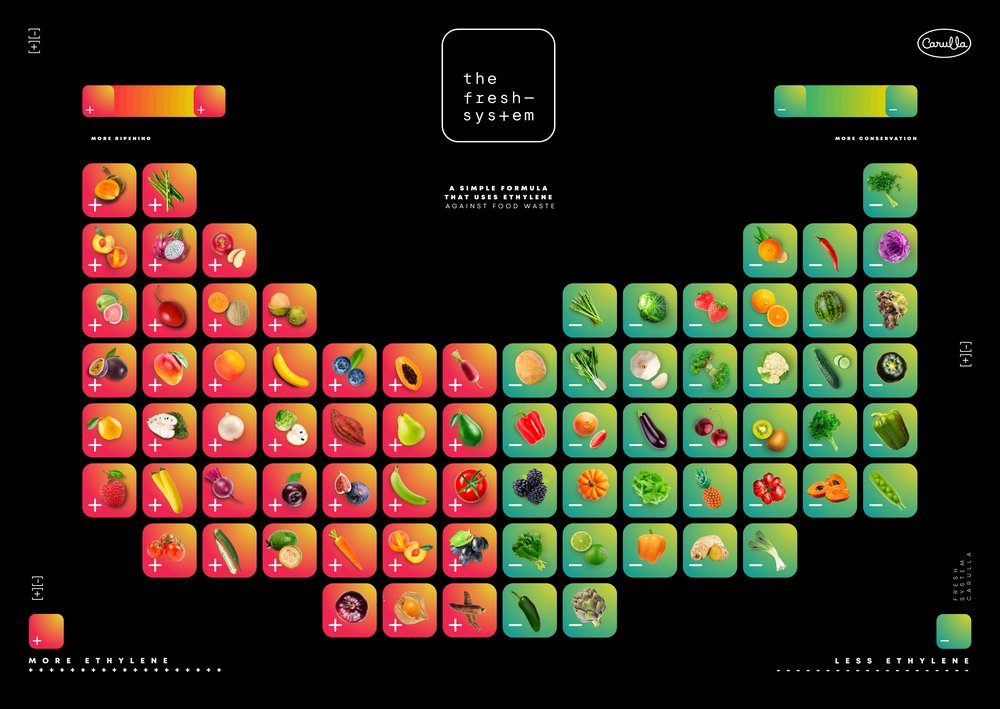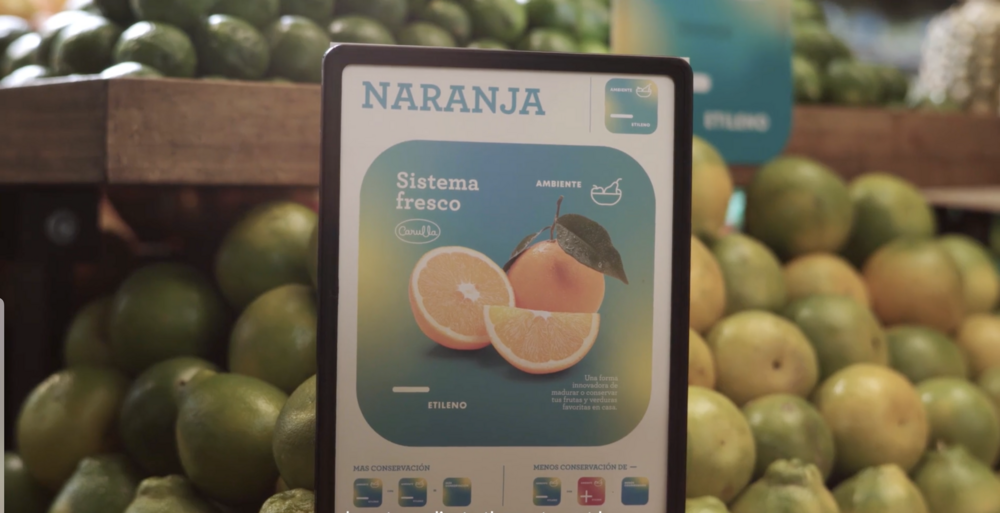Campaign of the Week
Colombian supermarket publishes guide for keeping produce fresh /
Carulla creates colourful guide to show people how to store fruits and veg to keep them fresher for longer
To help people store their fresh produce so it lasts longer, and tackle food waste in the process, Colombian supermarket chain Carulla created a guide in April that identifies which fruits and vegetables should be stored together or separately, to slow the ripening period and prevent premature spoiling.

One of the main causes of fresh produce ripening and eventually going bad, is ethylene, a natural gas given off by some fruits and vegetables. To raise awareness around this and educate people how to avoid wasting food because of spoilage, the supermarket and creative agency Ogilvy Colombia, Bogotá, worked with expert nutritionists to contribute to the Fresh System initiative.

To start, the fruits and vegetables were classified into two groups – ones that produce more ethylene and ones that produce less. The Fresh System guide, available on Carulla’s digital channels and social media networks, outlines the ideal at-home storage methods for the fresh produce available at Carulla supermarkets. For instance, want fresher tomatoes? Store them next to apples. Fresh System even reveals the optimal storage location for each product – whether to store in room temperature, the refrigerator, or the freezer.

Produce was also organised according to the Fresh System in Carulla supermarkets, with signage explaining the ideal storage placements, encouraging customers to replicate these at home. Meanwhile, online orders were delivered to customers with the produce classified with labels defining how they should be best stored.
To make an even greater difference, the brand shared the system with competitors to further help reduce food waste around the world.

Contagious Insight /
Waste not / According to WRAP UK, around a third of all food manufactured around the world is thrown away, which contributes between 8-10% of total greenhouse gas emissions. In 2020, we covered a global Consumption Crisis trend that explores how brands should address the growing environmental concerns around the world by inspiring people to consume and waste less in order to protect our planet, and highlight that, ‘If brands want to stay relevant, they may need to move away from encouraging people to consume more and instead persuade them to consume better. Marketers need to take responsibility for their role in the climate crisis and make the case – both to internal stakeholders and consumers – for buying more sparingly, thoughtfully and sustainably.’
To generate and maintain affinity within the food industry, brands have an obligation to take responsibility for their contribution to the food waste crisis by creating more eco-friendly initiatives that inspire people to waste less food. Fresh System taps into this trend, with Carulla acknowledging its industry’s contribution to the global consumption crisis and addresses it with an easy-to-use incentive for customers to help make a difference. It doesn’t wag the finger either, rather the guide is pitched as a helpful way for people to keep food fresh for longer – and who wouldn’t want to do that?
Healthy signs / We’ve reported on similarly sustainably minded supermarket campaigns, but they have used technology to help people shop more mindfully – such as the apps from Coop DK and S Group’s. What makes this campaign effective is the simplicity behind the core idea, and simplicity of its delivery. By relying on easy to follow guidelines – like storing an orange beside a lemon – Fresh System makes this everyday sustainability act easier for people to merge into their daily lives, no app download necessary. Another integral aspect to the campaign is how it spans in-store, online and at-home. By separating the produce at stores and flagging up the system through clear, colourful signage, Carulla exposes shoppers to the system, nudging them to engage with it, and extends into people’s homes with suitably separated produce, making it even more straightforward for people to latch on to.
Want more of the same? /
We don’t just write about best-in-class campaigns, interviews and trends. Our Members also receive access to briefings, online training, webinars, live events and much more.






